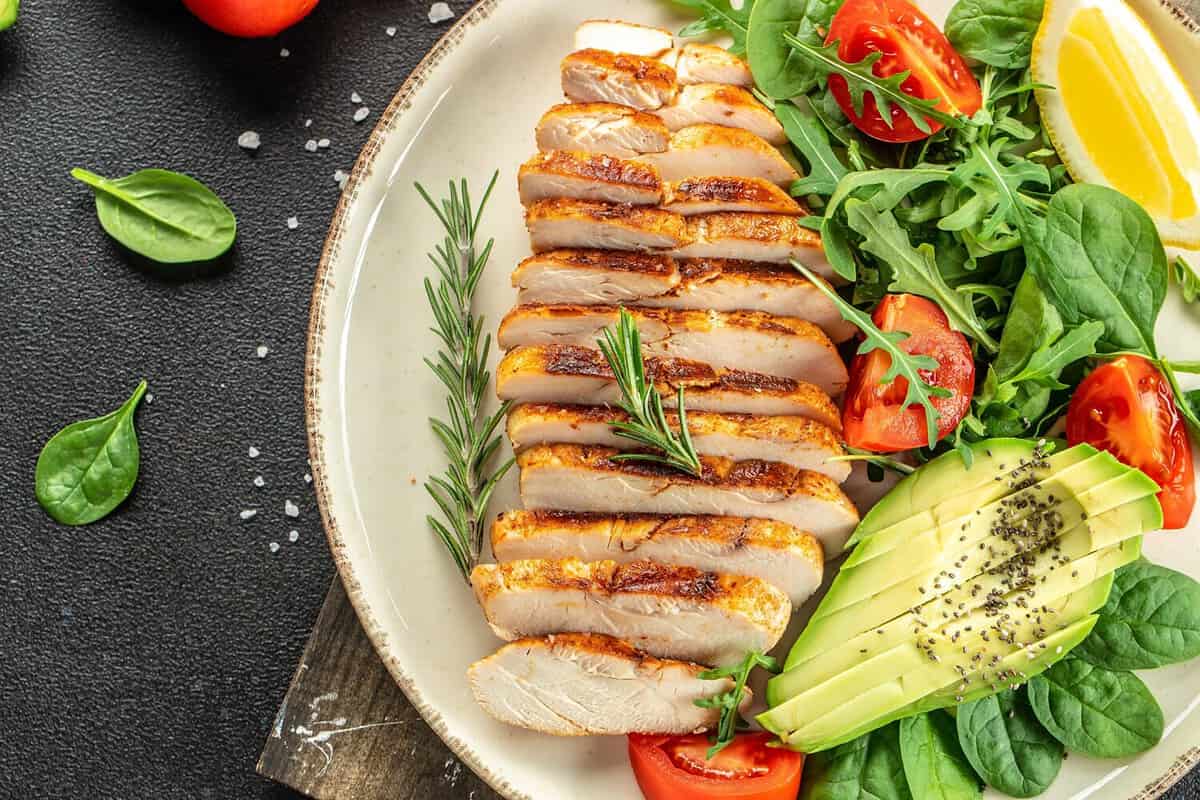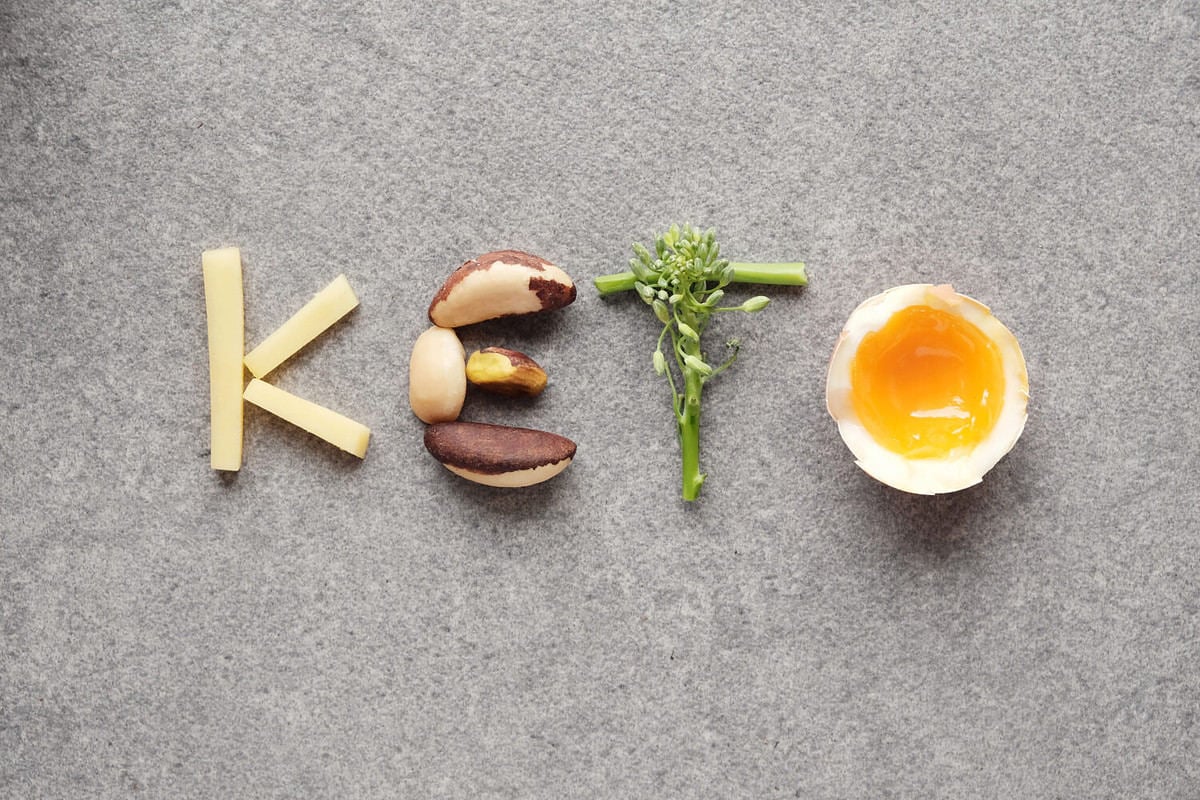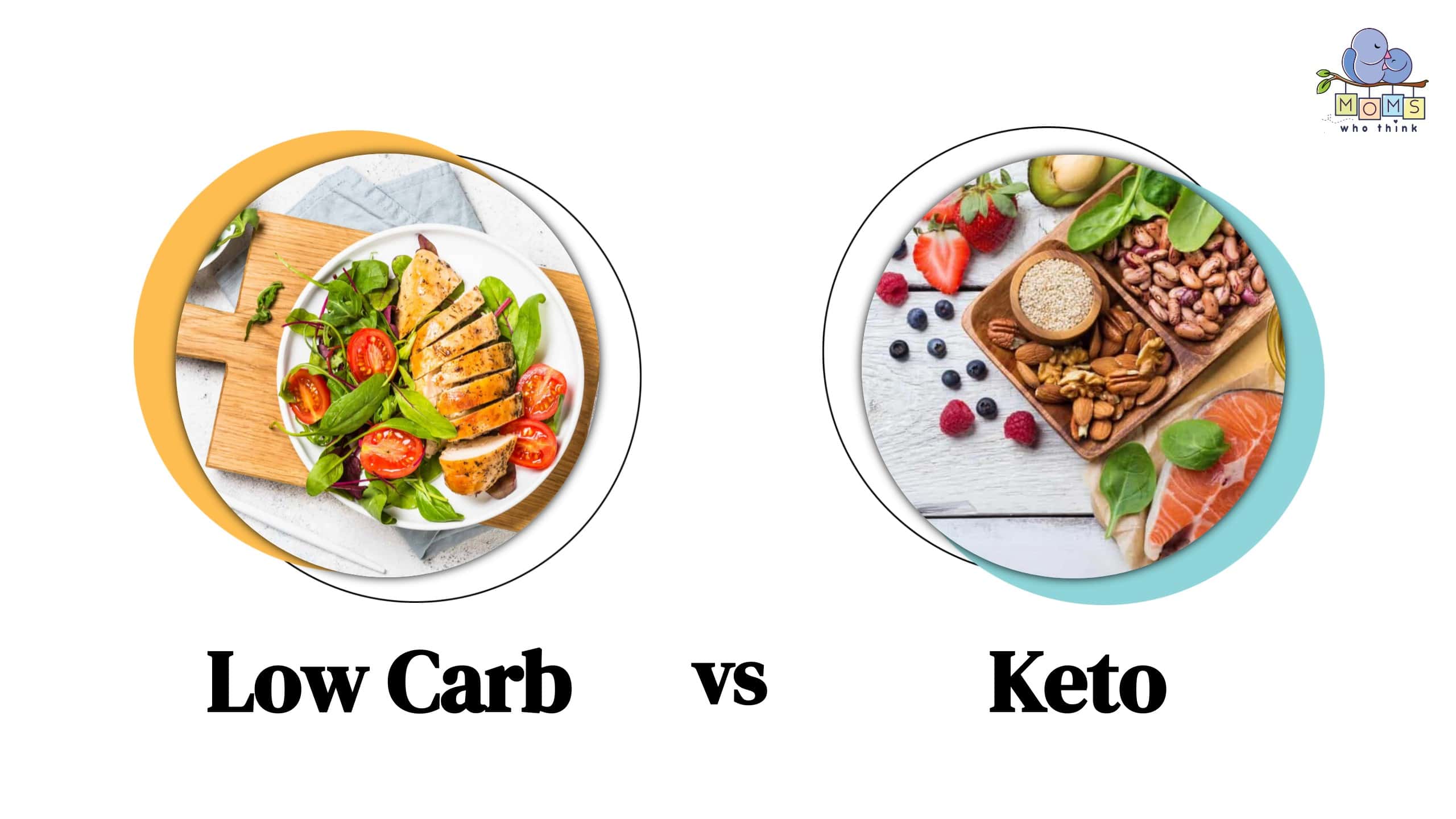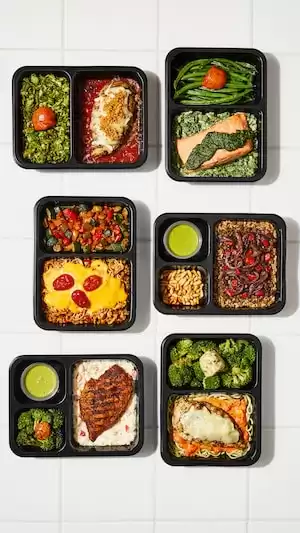Figuring out the right foods for our overall health can feel challenging. There are so many different diets out there fighting to take center stage. However, low-carb diets are one of the top diet trends gaining attention in recent years. Several years ago, low-carb diets were controversial. Now, studies show that they can benefit weight loss and overall health. Specifically, this article will look in-depth at the difference between low carb and keto.
Low carb is an all-encompassing term that covers every low-carb diet. The keto diet is a low-carb diet, but not all low-carb diets are keto. Keto is very strict with what foods can be eaten. It is a very low-carb diet that is high in fat consumption with moderate protein consumption. The purpose of a keto diet is to force your body into ketosis. Let's take a look at each diet in more depth below.
What is Low Carb?
As stated earlier, a low-carb diet is a broad catch-all for any carb-restricted diet. A ketogenic diet is a very low-carb diet. However, more low-carb diets are not as restrictive as keto. These include Paleo, Atkins, and Mediterranean diets.
In a typical diet, carbohydrates can take up 45-65 percent of a person's overall diet. Carbohydrates alone are not bad for our health. They are sugar molecules that are broken down into glucose. This glucose is also the primary source of energy for our body. When eating a low-carb diet, our bodies will break fat down into ketones because they no longer have energy-burning carbohydrates.
Benefits of Low-Carb Diets
There have been several studies that point to the benefits of eating a low-carb diet. It can contribute to more weight loss than other diets. This can be for a few reasons. First, you should consume more fat and proteins when going low carb. These foods can also make you feel fuller for longer, attributing to weight loss.
Additionally, when our bodies do not use the glucose we eat, it is stored in the liver and muscles and turned into body fat. Therefore, when you lower your carb intake, your body will turn your stored fat into ketones, burning it for energy.
A low-carb diet's benefits include lowering blood sugar and blood pressure and reducing risks for heart disease and diabetes.
One low-carb diet can look different from another. To do a low-carb diet to lose weight, you will need to lower the carbs you eat daily and increase the amount of fat and protein. This can look like lowering your carb intake to between 50 and 100 for a slow and steady fat loss. More restrictive low-carb diets like keto may take it further and lower the carb intake to under 50.
Downsides to Eating a Low-Carb Diet
Although there are many benefits to eating a low-carb diet, there are also a few downfalls. For starters, sometimes it can take high motivation and work to get started. Some people make the mistake of eating too much protein during a low-carb diet. This can halt progress because our bodies will turn the amino acids in protein into glucose.
Low-carb diets can also come with a few symptoms that make quitting appealing. These symptoms can include headaches, fatigue, moodiness, constipation, and muscle cramps. One tip for starting a low-carb diet is to stay hydrated and replenish your sodium intake.

©sweet marshmallow/Shutterstock.com
What Is Keto?
Keto, also known as the ketogenic diet, is a very low-carb, high-fat diet with many benefits. It is marked by consuming very low amounts of carbohydrates, typically under 50 grams daily. Instead of eating carbohydrates, high fat and moderate protein are consumed.
Going on a ketogenic diet will force our bodies into ketosis. This will help our body burn stored fat for energy.
Health Benefits of Keto
Studies have pointed to many health benefits of eating a keto diet. It can aid in fast weight loss and lower the risk of certain diseases such as diabetes, cancer, epilepsy, and Alzheimer's disease. Additionally, keto diets can help with the following:
- Lower blood pressure
- Lower triglyceride levels
- Improve insulin
- Improve risk of heart disease
- Reduce the risk of cancer
- Reduce the risk of Parkinson's disease
- Improve risk of Polycystic Ovarian Disease
The concept of the ketogenic diet is similar to any low-carb diet. The goal is to reduce carb intake and replace it with healthy fats to the point where your body produces ketones and burns the stored fat. Consequently, lowering carbs will push your body into a metabolic state known as ketosis.
The keto diet will drastically reduce carbs more than many other low-carb diets. Reducing carbs significantly will do a couple of things. First, it will turn the stored fat into ketones, supplying the brain with energy. It will also burn stored fat for energy in a very efficient manner.
What Exactly is Ketosis?
Ketosis is a metabolic state. It is when your body uses fat for energy instead of the carbohydrates that it is used to getting. Carbohydrates are one of our body's primary sources of energy. Therefore, to reach ketosis, carb intake has to be significantly reduced to limit glucose.
While a typical low-carb diet limits carbs to 100 or under a day, it won't necessarily force you into ketosis. To enter ketosis, carb intake typically must be between 20 to 50 grams of carbs daily.
Those who eat a keto diet will replace carbs with proteins and fats. In particular, a keto diet will be high in healthy fats and moderate in protein. Additionally, often keto diets are coupled with intermittent fasting for faster and more efficient results.
If you are on a keto diet, there are a few different ways to determine if you are in ketosis. For starters, having the “keto flu” may indicate that you are now in ketosis. This is typically characterized by dry mouth, frequent urination, decreased hunger, and increased thirst. Additionally, some tests can measure ketones in your body. These include urine, blood, and breath tests.

©SewCreamStudio/Shutterstock.com
Low Carb vs. Keto: What are the Differences?
Now that we looked at what keto and low-carb diets are let's examine the main differences.
For starters, low carb is an all-encompassing term for any low-carb diet. This includes the keto diet but is not limited to it. Particularly, keto is a specific low-carb diet.
Difference Chart Between the Low-Carb Diets
Look at the difference between popular low-carb diets and foods allowed and not allowed. This chart is just a quick snapshot, not an exhaustive list.
| Low-Carb Diet | How Many Carb Allowed | Foods Allowed | Foods Not Allowed |
| Ketogenic | Between 20 and 50g carbs a day | High-sugar fruits and vegetables, bread, pasta, cereals, and sugary foods | Low-carb fruit and vegetables, eggs, nuts, seeds, protein-packed meat and seafood |
| Atkins | Two Types allow 20 net carbs and 40g net carbs | Eggs, meat, cheese, and butter | High sugar fruits and vegetables, bread, pasta, cereals, and sugary foods |
| Whole30 | Between 100 and 175g carbs a day | Seafood, eggs, vegetables, fruit, and healthy natural fat. | Baked goods, alcohol, all sweeteners, processed foods, sugar, and grains |
| South Beach | Phase One under 50g carbs, Phase Two 70 to 100g carbs, Phase Three 140g carbs | Lean meats, healthy oils, whole grains, vegetables, and fruit | Processed foods, artificial sweeteners, soda, cereal grains, and legumes |
| Paleo | Phase one under 50g carbs, Phase two 70 to 100g carbs, Phase Three 140g carbs | Fruits and vegetables, lean meat, nuts and seeds | Processed foods, dairy, grains, sugar, legumes, and beans |
| Mediterranean low-carb | 30% of the daily diet should be carbs | Vegetables, fruits, eggs, nuts and seeds, lean meats | Refined grains, sodas, candy, and processed foods |
Are Low Carb and Keto the Same Thing?
Low-carb and keto diets are similar but are not the same thing. Both require limiting carb intake until our bodies start using stored fat for energy instead of carbohydrates. A keto diet is a restrictive, low-carb diet. Alternatively, a low-carb diet includes many different low-carb diets.
What Food Is Allowed on Low Carb?
When on a low-carb diet, certain foods should be eliminated. These include high-carb foods like baked goods, candy, and sodas. Start by limiting carbs and opting for healthy fats and proteins.
Foods that can be eaten on a low-carb diet include:
- eggs
- leafy green vegetables
- low carb fruits like apples, blueberries, and strawberries
- unsweetened dairy products like Greek yogurt
- nuts
- seeds
- lean meats-steak chicken or turkey
- fish
- beef
- lamb
- shrimp
- catfish
- broccoli
- tomatoes
- onions
- brussel sprouts
- kale
- cauliflower
- cucumber
- asparagus
- bell peppers
- mushrooms
- green beans
- zucchini
- Swiss chard
- cabbage
- celery
- spinach
- avocado
- grapefruit
- olives
- kiwis
- oranges
- raspberries
- lemons
- cheese
- heavy cream
- extra virgin olive oil
- butter
- water
- coffee
- dark chocolate
What Food Is Allowed on Keto?
The foods that are allowed while on a keto diet are more restrictive. Avoid sugary foods or drinks, including soda, fruit, root vegetables, and more. Take a look below for a more extensive list:
Foods to avoid:
- peas
- kidney beans
- lentils
- chickpeas
- wheat-based products
- rice
- pasta
- cereal
- soda
- fruit juice
- cake
- candy
- salad dressings
- condiments
- processed vegetable oils
- beer
- wine
- liquor
- sweeteners
- sugar-free candies
- potatoes
- sweet potatoes
- carrots
- soda
- sweetened yogurts
- baked goods
- honey
- processed Foods
- refined Carbs
- syrup
Foods that you can eat While on a Ketogenic Diet
While on a ketogenic diet, the foods you eat should be low carb and high in fat or moderate in protein. Try to opt for whole foods that have only one ingredient.
These foods include:
- red meat
- bacon
- ham
- steak
- chicken
- turkey
- sausage
- eggs
- salmon
- tuna
- mackerel
- trout
- heavy cream
- grass-fed butter
- unprocessed cheeses
- almonds
- flaxseeds
- pumpkin seeds
- walnuts
- extra virgin olive oil
- avocado oil
- whole avocados
- green vegetables
- tomatoes
- onions
- peppers
- salt
- pepper
- spices
One Last Note
Eating a low-carb diet can offer many benefits. These include increasing health risks and losing weight. Which low-carb diet you eat is a personal preference. A more restrictive diet like keto can offer quicker results but also have adverse effects like the keto flu, fatigue, and brain fog. A typical low-carb diet can also produce results at a steady and slow pace while allowing you to reap the health benefits!
Low-Carb Posts
- Low-Carb Dinner Ideas
- Low Carb Diet
- Low Calorie or Low Carb to Lose Weight
- This is the Perfect Low Carb Cheesecake Recipe for Your Diet
- Keto Side Dishes for BBQ

